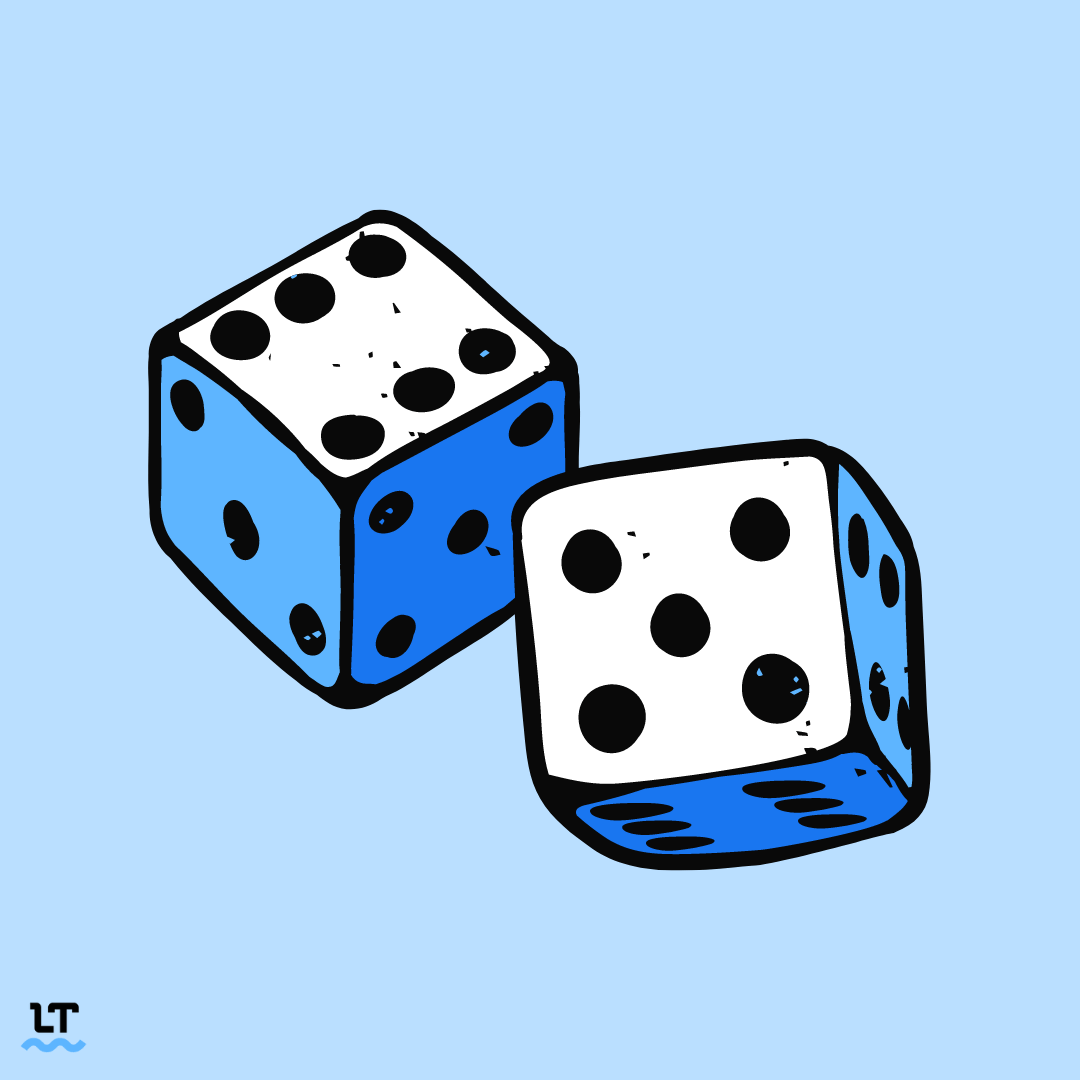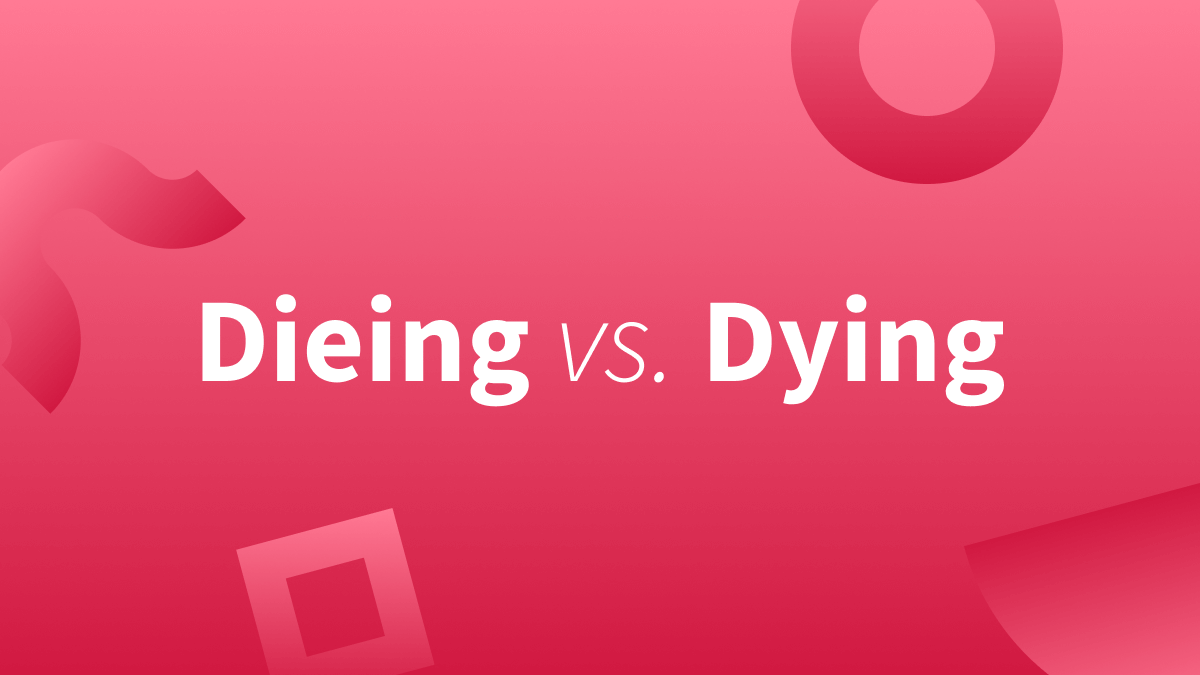“Dieing” vs. “Dying”
If you’re referring to death or the verb to die, then the correct spelling of its present participle is dying.
- I think my plant is dying because I overwatered it.
“Dieing” or “Dying”: Which Is Correct?
The short answer is this: If you’re referring to the process of death, then the correct spelling is dying, not dieing. This can be confusing to English learners and native speakers alike because the base form of the verb is simply (to) die.
So, that leaves us with dieing. Is that even a word?
Below, we’ll elaborate on the verb to die and the correct spelling of its present participle form.

What Does “Dying” Mean?
To die is a verb that means “to cease to exist or be alive.” To die, like every other verb, has different forms.
- Base form: (To) die
- Past tense: Died
- Past participle: Died
- Present participle: Dying
- Third-person singular: Dies
Dying is the present participle of to die. Remember, the present participle is used to refer to an action that started at some point in the past but is still occurring in the present.
I just got the news that Nana is dying.
Several species of animals all over the world are dying because of habitat loss.
The crops keep dying due to invasive insects and critters.
The nurse was with the dying patient when her family arrived.
The fish are dying because the tank’s water isn’t at the right PH level.
There are a few things we should note about the verb to die and its present participle form dying.
To die is often used hyperbolically. That is, it’s used to emphasize (or dramatize) a point. For example:
If I don’t get these tickets, I’m going to die.
In the sentence above, the speaker is using the verb to die to express that they’ll be extremely distraught if they don’t get the tickets.
I’m dying to go to the concert.
Again, in the sentence above, dying shows that the speaker really wants to go to the concert.
One last note on the verb to die, it also refers to when a machine or device stops working.
I couldn’t call you because my phone died.
Luis had to buy a new car because the engine of his old one died.
My laptop is about to die. Do you have a charger I can borrow?
Please Keep in Mind
Dying can also function as an adjective that means “approaching death” or “relating to or occurring at the time of death.”
- My grandmother’s dying wish was for me to follow my dreams no matter what.
What Does “Dieing” Mean?
Aside from being a verb, the word die can also function as a noun.
You might be familiar with one of these uses as a noun: A die refers to a small cube with different numbers, shapes, or symbols on each face that is used in board games, gambling, and other types of activities. The plural of die is dice.

Die can also refer to a specialized machine tool used in manufacturing industries to cut and form material to a desired shape or profile.
In that case, someone may claim that they are dieing something. However, this is also incorrect. Neither Merriam-Webster, Oxford, nor Cambridge Dictionary list dieing as a word.
If you want to use this meaning of the word die as a verb, it’s better to play it safe and stick to die cutting or die forming.
What About “Dyeing”?
But wait! There’s a third homophone: dyeing.
To dye something means “to change its color by using a liquid or substance.” The present participle of this word is dyeing.
- I want to dye my hair blonde.
- I am dyeing my hair tomorrow.
Are You “Dying” for Your Writing To Be Flawless?
When it comes to dieing and dying, here’s what you must remember: The correct present participle of the verb to die is dying.
Dieing is a word that some people use to describe the process of cutting or shaping a material. However, this is not the correct spelling of the word.
In short, there’s no reason for you to use the word dieing, as it is always incorrect.
Correctly adding “–ing” to verbs can be tricky. LanguageTool is a multilingual writing assistant that remembers all the grammar and spelling rules, so you don’t have to.
Are you dying to write like a pro? Try it out.

